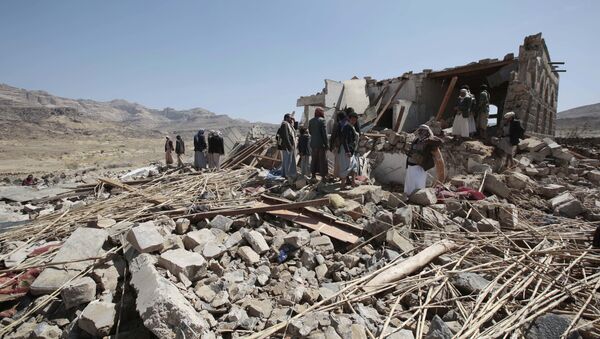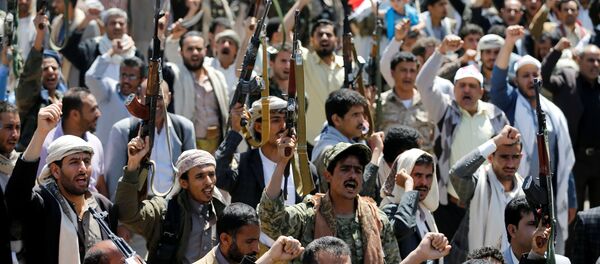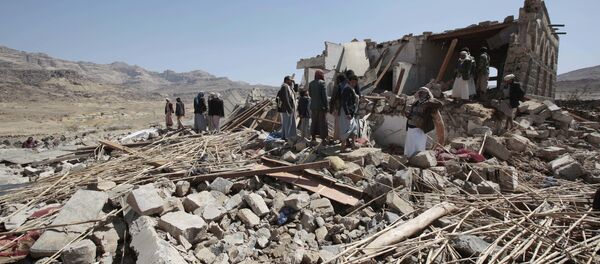Earlier Matthew Tueller, the US ambassador to Yemen, said that the US is not in a position to enforce a cease-fire.
“We simply don't have leverage over the groups that are actually fighting on the ground,” he said.
However, many don’t agree that the US is without leverage in the Yemeni crisis and suggest that the diplomatic effort is incomplete.
It can be recalled that the US embassy is not located in Sanaa, Yemen, at present, but is actually situated 500 miles away in Jeddah, Saudi Arabia, from where Tueller works to mitigate the conflict.
However, according to al-Bahri, “Saudi Arabia started the war in Yemen on the orders of the US because the kingdom does not take any action without a preliminary agreement with the US leadership.”
"If Washington wanted to end this crisis, it would exert the necessary pressure on all parties of the conflict. The statements of the US ambassador were made after the refusal of the Yemeni people to accept the initiative by Ould Cheikh Ahmed [UN special envoy to Yemen] because Yemenis felt that this initiative offends their self-esteem and may pose a threat to the stability of their country,” al-Bahri said.
In turn, Yemeni political analyst Mahmud al Tahir said that all the promises made by the UN regarding the settlement of the Yemeni crisis have not been realized.
“The statements of European politicians on the inadmissibility of a military solution to the conflict were aimed at a political game with Saudi Arabia, rather than resolving the crisis,” al-Tahir said.
According to the analyst, the recent statements by the US ambassador seem to signal that the situation in Yemen is now transferred completely into the hands of Saudi Arabia, which can now act as they want to.
“Saudi Arabia should understand that it is unprofitable for everyone to continue the war. Riyadh should seek to find ways of reconciliation, otherwise the Yemeni war will cause a real crisis in the region,” al Tahir concluded.
Yemen has been in the grip of a civil war since 2014, which has affected the country’s infrastructure, economic and social systems, as well as national health care.
The war is waged between the internationally recognized government of President Abd Rabbuh Mansur Hadi and the Houthi movement backed by army units loyal to former President Ali Abdullah Saleh. In March 2015, the Saudi-led coalition of mostly Persian Gulf countries launched airstrikes against the Houthis at Hadi's request.
A new report from the Norwegian Refugee Council has estimated that 10,000 residents of the Yemeni capital of Sana’a have died from preventable illnesses as a result of a Saudi Arabian blockade depriving the citizens of medical care.




